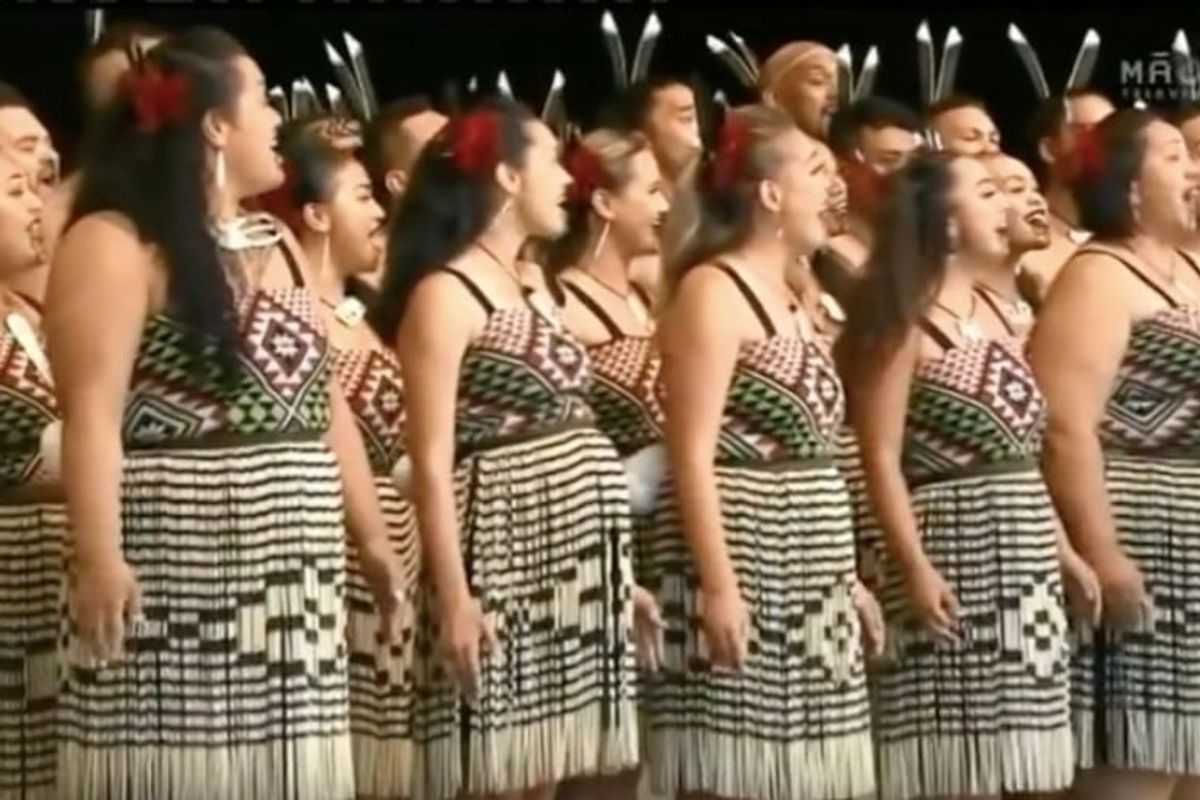Māori kapa haka performance of 'Bohemian Rhapsody' is the ultimate cultural mash-up
Unexpected—and awesome.
A Māori choir sings the Queen classic "Bohemian Rhapsody."
Queen's "Bohemian Rhapsody" has been covered dozens of different ways, but you've never seen it performed like this.
As one of the most iconic songs in rock music, "Bohemian Rhapsody" is recognizable no matter how it's done. As children, my brother and I used to belt out Galileos and Figaros in the backseat of our parents' Volkswagon whenever the song came on (yes, just like in Wayne's World). While other kids learned about Beelzebub in Sunday School, I learned about him from Queen's perfect harmonies. If there were an anthem from my classic-rock-filled childhood, it would be "Bohemian Rhapsody."
It's one of those songs that is hard to cover well, though it hasn't stopped people from trying. Some renditions are definitely better than others, but this kapa haka version from New Zealand has caught people's attention and delight like few "Bohemian Rhapsody" covers have.
A Māori choir in native garb sang the song live in the Māori language, and it is something to see.
The group Hātea performed the song on February 21, 2019, at New Zealand's national kapa haka festival, Te Matatini, in Wellington. The festival brings 46 kapa haka (Māori performing arts) groups together to compete against one another.
Newshub reports that Hātea collaborated with musical artist William Waiirua to create a "Bohemian Rhapsody" cover in the Māori language, both as a tribute to Freddie Mercury and to celebrate the Oscar-nominated movie about his life.
- YouTube www.youtube.com
The group had previously created a music video for their cover, but seeing it performed live is something else. The voices, the harmony, the presentation—everything—is wonderful.
This kind of cultural mashup reminds us how small our world has become.
The contrast between Queen's 1970s British rock and the Māori people's traditional kapa haka could not be more striking. And yet, the melding of the two totally works. Music has the power to bring people together, and this performance is a great example of how it can bridge cultures with beautiful results.
Watch the live performance here:
- YouTube youtu.be
People loved seeing it:
"Lump in the throat. Im so proud to be a Kiwi. This Kapa haka group is so talented. The harmonies are fantastic. The Maori language is so precious as are our Maori people. I could listen to this group over and over again. Spectacular."
"I was just totally moved, and have legitimately got goosebumps from this beautiful Maori rendition, of a Queen classic, Bohemian Rhapsody. I just had this wave of emotion, come soaring throughout my whole entire body."
"I’m just a simple Aussie but that was incredibly moving, something inherently beautiful about the Polynesian peoples, don’t ever change."
"Freddie told his executor before he died that he didn’t care what was done with his legacy, just ‘don’t make me boring’. This is exactly the kind of thing he was hoping would happen with his legacy when he said that."
"The reach of this song, far and wide, across all kinds of languages, cultures and ages, is astounding. This is GLORIOUS. No one could have imagined this in 1974/75. Thank goodness the record exec who said it wouldn't sell didn't stop Queen from releasing it back then."
"That was freaking awesome! Freddy is smiling down on this! Thank you!"
As one commenter pointed out, it's interesting how often "mama" is a common word among different languages. It's unmistakable in this song, even if you don't understand any of the other words.
And if you want more, check out the official music video for the "Bohemian Rhapsody" cover as well:
- YouTube youtu.be
This article originally appeared six years ago.

